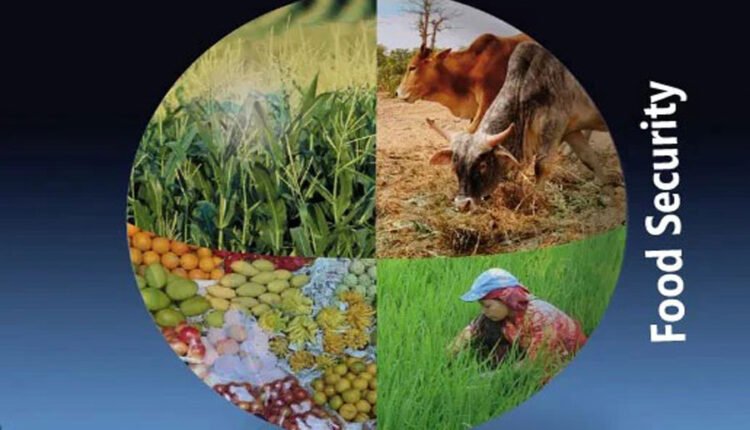Understanding How Climate Change Impacts Food Security
Climate change is a global phenomenon that has far-reaching consequences for our planet. One of the critical areas affected by climate change is food security. As extreme weather events become more frequent and agricultural systems face new challenges, it is crucial to comprehend the impact of climate change on our ability to produce and access sufficient food. In this article, we will explore the various ways in which climate change affects food security and discuss potential solutions to mitigate its effects.
Changing Weather Patterns
Climate change alters weather patterns, leading to more frequent and intense heatwaves, droughts, floods, and storms. These extreme weather events pose significant risks to crop production and livestock. Heatwaves and droughts can cause crop failures, reduced yields, and lower nutritional value in staple crops. Floods and storms, on the other hand, can destroy agricultural infrastructure and disrupt supply chains, affecting food availability.
Shifts in Crop Suitability and Productivity
Rising temperatures and changing precipitation patterns influence the geographical suitability of certain crops. Regions that were once productive for agriculture may become less suitable due to increased heat stress or water scarcity. Conversely, some regions may experience improved conditions for certain crops. However, adapting to these shifts requires significant investments in infrastructure, technology, and knowledge transfer.
Decreased Crop Diversity
Climate change can lead to a decline in crop diversity, limiting the availability of essential nutrients and increasing vulnerability to pests and diseases. Farmers often focus on a few high-yielding crop varieties, leaving the agricultural system susceptible to climate-related risks. Preserving and promoting crop diversity through initiatives such as seed banks and farmer education is crucial for building resilience in the face of climate change.
Disrupted Livelihoods for Farmers
Smallholder farmers, who play a crucial role in global food production, are particularly vulnerable to climate change. Their livelihoods heavily depend on agricultural activities, making them susceptible to crop failures, reduced income, and increased indebtedness due to climate-related disasters. Supporting farmers through climate-smart agricultural practices, access to financial resources, and social safety nets is vital for enhancing their resilience and ensuring food security.
Impacts on Fisheries and Aquaculture
Climate change also affects aquatic ecosystems, including fisheries and aquaculture. Rising sea temperatures, ocean acidification, and changes in ocean currents impact the distribution and abundance of fish species. These changes can undermine fishery productivity, disrupt the livelihoods of fishing communities, and reduce the availability of affordable protein sources. Sustainable management practices, such as implementing fishing quotas and promoting resilient aquaculture systems, are essential to safeguard food security in coastal regions.
Sustainable Agriculture Practices
Implementing sustainable agricultural practices can help mitigate the effects of climate change on food security. Techniques such as agroforestry, conservation agriculture, and precision farming can improve soil health, water management, and resource efficiency. Additionally, adopting climate-smart crop varieties and diversifying farming systems can enhance resilience to extreme weather events.
Climate-Resilient Infrastructure
Investments in climate-resilient infrastructure are crucial for protecting agricultural systems from the impacts of climate change. This includes irrigation systems, water storage facilities, and climate-controlled storage for perishable crops. Strengthening rural infrastructure, such as roads and market access, can improve the ability of farmers to transport and sell their produce, ensuring food availability even in challenging times.
Research and Development
Investing in research and development is vital for developing innovative solutions to address the challenges of climate change on food security. This includes developing drought-tolerant and heat-resistant crop varieties, improving pest and disease management strategies, and enhancing early warning systems for extreme weather events. Collaboration between scientists, farmers, and policymakers is crucial for translating research findings into practical solutions.
Education and Knowledge Transfer
Providing farmers with access to education, training, and knowledge transfer is essential for building their capacity to adapt to climate change. This includes promoting sustainable farming techniques, climate-smart practices, and efficient use of resources. Farmer field schools, extension services, and knowledge-sharing platforms can facilitate the dissemination of information and empower farmers to make informed decisions.
International Cooperation
Addressing climate change and its impact on food security requires international cooperation and collective action. Collaborative efforts among governments, organizations, and stakeholders are necessary to develop policies and strategies that prioritize food security in the face of climate change. Sharing best practices, technology transfer, and financial support to vulnerable regions can help build resilience and ensure global food security.
Conclusion
As climate change intensifies, the impacts on food security become more apparent. From changing weather patterns to disrupted livelihoods for farmers and diminished crop diversity, the effects are multifaceted and demand immediate attention.
Addressing climate change requires a comprehensive approach involving sustainable agricultural practices, investment in research and development, and international cooperation. By acknowledging and acting upon the challenges posed by climate change, we can strive towards a more resilient and secure global food system for present and future generations.
Ensuring Food Security : Empowering The Right To Food


